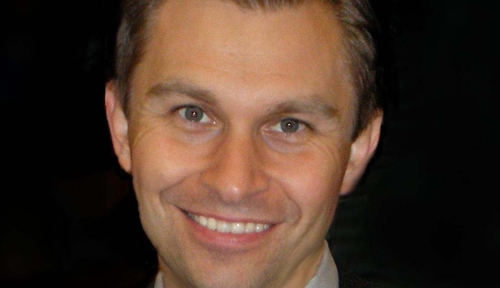David Sinclair, Ph.D., a professor at Harvard Medical School Departments of Genetics, will be the guest speaker for the University of Nebraska Medical Center’s Denham Harman, M.D., Ph.D., Lectureship in Biomedical Gerontology on Friday, April 4, at noon.
The lecture, sponsored by the UNMC Department of Internal Medicine, is titled, “Aging Reversal: How Close Are We?” It will explore the possible impact that finding a means to slow aging could have on society.
The lecture will be held in the Durham Research Center Auditorium and is open to the public.
Dr. Sinclair and his colleagues published a study in the journal Science last year that demonstrated what researchers consider conclusive evidence that the red wine compound resveratrol directly activates a protein that promotes health and longevity in animal models.
He co-founded five biotechnology companies and is co-founder and co-chief editor of the journal Aging. Dr. Sinclair has received awards, including The Australian Commonwealth Prize, a Helen Hay Whitney Postdoctoral Award, a Leukemia Society Fellowship, a Ludwig Scholarship, a Harvard-Armenise Fellowship, and an American Association for Aging Research fellowship.
Dr. Sinclair is founder and co-director of the Paul F. Glenn Laboratories for the Biological Mechanisms of Aging. He is a senior scholar of the Ellison Medical Foundation.
After earning a Ph.D. in Australia, Dr. Sinclair worked at M.I.T. and co-discovered a cause of aging for yeast and a new set of anti-aging genes called sirtuins. In 1999, he moved to Harvard Medical School where his lab works primarily on understanding the role of sirtuins in disease and aging, with interests in energy metabolism, mitochondria, learning and memory, neurodegeneration, and cancer.
Dr. Sinclair is an honorary professor at Sydney University and co-joint professor in the Department of Medicine at the University of New South Wales.
The Harman Lectureship was established in 2002 by the University of Nebraska Foundation in honor of Dr. Harman, Emeritus Millard Professor of Medicine at UNMC, who is known internationally as the father of the Free Radical Theory of Aging. He proposed the theory in 1954 and discovered the role of antioxidants (vitamins C, E and beta-carotene) in fighting heart disease, cancer, Alzheimer’s and Parkinson’s disease.
Through world-class research and patient care, UNMC generates breakthroughs that make life better for people throughout Nebraska and beyond. Its education programs train more health professionals than any other institution in the state. Learn more at unmc.edu and follow us on social media.
